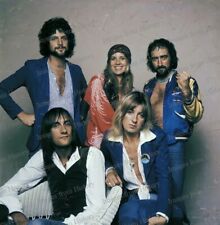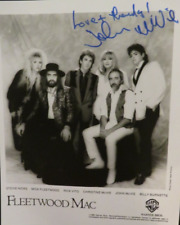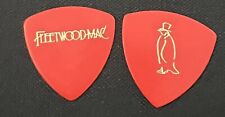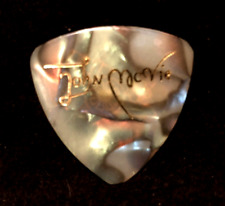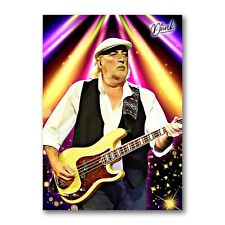|
The Guitar Magazine, Volume 7, Number 9 (07/1997), A Rare Encounter With Danny Kirwan The Guitar Magazine, Vol. 7, No. 9, July 1997 While Peter Green commanded all the eulogies, the classic Fleetwood Mac line-up featured another mercurial guitar talent - teen prodigy Danny Kirwan. With the help of Mac cohorts, band historian Martin Celmins traces Kirwan's speedy rise and his equally swift and disturbing demise. Plus, he tracks down Kirwan himself for an ultra-rare interview. A Rare Encounter With Danny Kirwan - October 1995
by Martin Celmins My first contact with Danny Kirwan since the 1970s was in 1992 whilst doing the preliminary research for the Peter Green biography. I bumped into him in Convent Garden sat on a bench. After chatting a bit, Danny gave me a fiver to buy some cans of lager, and we drank them whilst chatting mainly about his life on the streets of London, hardly touching on the subject of music. He complained how tabloid press photographers would still hound him from time to time (the outcome being headlines such as "20 Pints a Day and I'm All Right Mac). Ever since then, I maintained this contact - occasional phone calls or meetings up in Soho pubs - and noticed that gradually he chose to talk about his Fleetwood Mac days. Danny was happy to do this interview in his room at the hostel in south London although fatigue set in quite quickly as the number of empty cans built up. Speaking with a strong south London accent , he's bearde and still has a good head of hair. He is mostly cheery, quick to share a joke, and - bevied lapses in concentration aside - able to express his views forcefully and articulately. Nowadays, he rarely touches a guitar. What follows is an edited interview which, in particular, shows how he remembers with fondness his friendship with ex-Mac colleagues Mick Fleetwood and John McVie. I last popped in to see Danny in August 1996 and he looked less jaundiced than usual and quite well. Considering. MC: What does the blues mean to you? Danny Kirwan: Its a black man's language... something that stems from the the black nature of man. MC: Can a white man sing the blues? DK: Well ...he can, but he might do himself damage MC: How did you come to play that style of music? DK: Whats there was there...you get involved in things and that's it. I was around and gathered it all up and got involved. I didn't think 'I want to be a musician' ... it just kind of happened. At first I listened a lot to Paul McCartney - really loved Daytripper - and then I got into older music. MC: And you learned and got involved very quickly DK: Well there was nothing else i could do...if you're a white man you have to learn the blues you don't know them. Its as simple as that. The thing is...those black guys play the blues the way they are, because its their music. Its developed with them. But if you understand your brain content and you're a white man, you can play it, if you're clever. You see, I was infiltrated to the extent that I picked up a bug - I got into the blues and it got into my system like a bug gets into your system. But when you're a kid and you walk around with your family you don't notice the blues. MC: And you soon formed a band, Boilerhouse. DK: Yeah, but that was only a scrap kit. MC: You, with your Watkins Rapier electric... DK: Oh yeah, hahah! That bloody little thing! It only cost me 30 quid down the Kennington Rd - saw it in the shop, loved it, bought. MC: You were very into Jimi Hendrix and Eric Clapton weren't you? DK: Jimi Hendrix yes... I always fancied what he played. He was doing a gig down at the Ram Jam club in Brixton and I got in touch with him a little bit. I suppose because he was a pretty nice bloke. MC: And Clapton? DK: I dunno...sometimes I don't like him and sometimes I do. Yes, I guess he's alright, 'course he is. But as I say, I was more of a Hendrix fan. MC: You also listened to big band music and Django Reinhardt didn't you? DK: Yes, those were the kind of records I'd buy down at Dobell's near Charing Cross. I worked out Jigsaw Puzzle Blues from that stuff and then played the signals to the rest of the band and John McVie knew every signal you could give out. Signals to say, 'You do this and you do that' and they'd do it and it would all come together. That band was so clever - they knew all the signals and could do it. Which was great because I'm no Rod Stewart...thankfully. MC: Who were your favorite bluesmen? DK: Albert King - you'd drop out of last week for Albert wouldn't you? And Otis Rush - he had this nice sting in his playing that was his. Its called a timbre of guitar playing, and he had a thick timbre, that was his stamp. But you see, those guys were blacks, singing and playing about what it is to be black in their country, which isn't really their country. MC: What was it like joining Fleetwood Mac? DK: Mick Fleetwood asked me...there I was sitting like a little dum-dum, so he asked me. I didn't know what to think, once I'd joined because before then I'd just been straddling around and then I was on stage and there were television cameras, and I got a bit paranoid. MC: Can you remember how Albatross came about? DK: Well that was Monsieur Peter Green - I called him Monsieur, you know - and I played with him. On Albatross he told me what to do you know, all the bits I had to play MC: Peter has said that he'd never have done Albatross without Danny Kirwan... DK: Well, that's okay...as long as I'm Danny Kirwan without being dead next week, heheh! MC: And you did that country blues duet Like Crying together... DK: Yes, we did...(big grin). I remember Peter sat up on this chair and just singing, 'woman's got the blue - oo - ooze' again and again. Then I started writing it from that. When he sang that, it made me think of Bessie Smith, the woman who's got the blues. MC: One Sunny Day was a great blues rock track. DK: It was a bit too powerful that one; Mick Fleetwood was a very strong drummer. MC: How did you fit in with Fleetwood Mac as people? DK: I always liked Mick Fleetwood - he was like family but nowadays its a bit distant you know, people living in different cities. But I still think of them as friends. John McVie is the cleverest person and I could see that at the time. A nice bloke and highly intelligent, he was like my best friend in the band for a time. MC: And Jeremy Spencer? DK: He was a bit sarcastic - you know, those rock 'n roll songs he'd do was...sarcastic. And although I used to get on with John and Mick, it got very cliquey. The thing with rock bands is that they get very interested in themselves and their own relationships with each other - a cliquey kind of thing. Spencer and Green, for instance, knew each other well and were...mischievous. It was a very mischievous band. So I wasn't actually a part of them really. I only got mixed up with them. MC: Were you surprised when Peter left Fleetwood Mac? DK: Not particularly, I suppose. You see we just didn't get on too well basically and so he left me there. I mean we played some good stuff together, we played well together but we didn't get on. I was a bit temperamental you see.... End of Interview Thanks to Runnamok for posting this to the alt.music.fleetwood-mac newsgroup.
|





